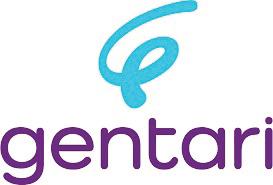PETALING JAYA: The current Renewable Energy Certificate tariffs (REC tariffs) are presenting challenges to the growth of Malaysia’s green hydrogen industry, said Gentari, the clean energy solutions arm of Petroliam Nasional Bhd (Petronas).
Gentari’s Technical Centre of Excellence for Hydrogen head, Wan M. Ikhwan Wan Yusoff, is calling for government support, particularly through lower electricity tariffs, to make green hydrogen more competitive.
“We are looking to the government when it comes to incentives, for example. So the developer, like ourselves, is basically looking forward to having more support from the government,” he told SunBiz in an interview at the sidelines of the FMM Energy Efficiency & Conservation Conference 2024 recently.
Wan M. Ikhwan pointed out that RECs come with tariffs that are slightly higher than standard electricity rates.
“If we can get further support to make RECs more competitive, it will definitely help us produce hydrogen at a more economical cost,” he said.
In Malaysia, hydrogen is widely used in refineries, but this is primarily fossil-based hydrogen.
“That is not really green hydrogen per se. To produce green hydrogen, we need green electrons, which come from renewable energy sources such as hydro, wind, or solar,” he noted.
He highlighted that Gentari is focused on transitioning to green hydrogen by leveraging renewable energy.
“Gentari’s role is to provide green electrons through our renewable energy division. We are establishing solar systems in Malaysia to power electrolyzers for green hydrogen production. In certain areas, we are also exploring wind energy, although not within the Malaysian context,” Wan M. Ikhwan said.
He added that Malaysia’s hydroelectric infrastructure, particularly in Sarawak, presents a competitive opportunity for green hydrogen production due to lower tariffs. “To make hydrogen production cost-effective, you need access to cheap renewable energy. Hydro power in Sarawak, with its competitive tariffs, is a good example.”
According to Tenaga Nasional Bhd (TNB) arm TNBX Sdn Bhd, the single provider of REC in Malaysia, REC represents the delivery of 1MWh of renewable energy to the grid, along with the associated environmental benefits of displacing 1MWh of conventional power.
RECs are tradable, market-based instruments generated for every 1MWh of renewable energy production. By purchasing RECs, companies can claim they have sourced renewable energy, even in areas without direct access to green energy.
“For companies with sustainability goals but limited access to green energy, RECs offer a cost-effective solution to meet their targets,” TNBX said.
According to its website, for 2024, TNB’s Green Electricity Tariff (GET) programme offers a quota of 6,600GWh.
Consumers who subscribe to GET will pay tariff rates as outlined in the tariff schedule for their total monthly electricity consumption at a rate of 10 sen per kWh for residential and low-voltage non-residential tariffs, and 20 sen per kWh for medium and high-voltage non-residential tariffs.









